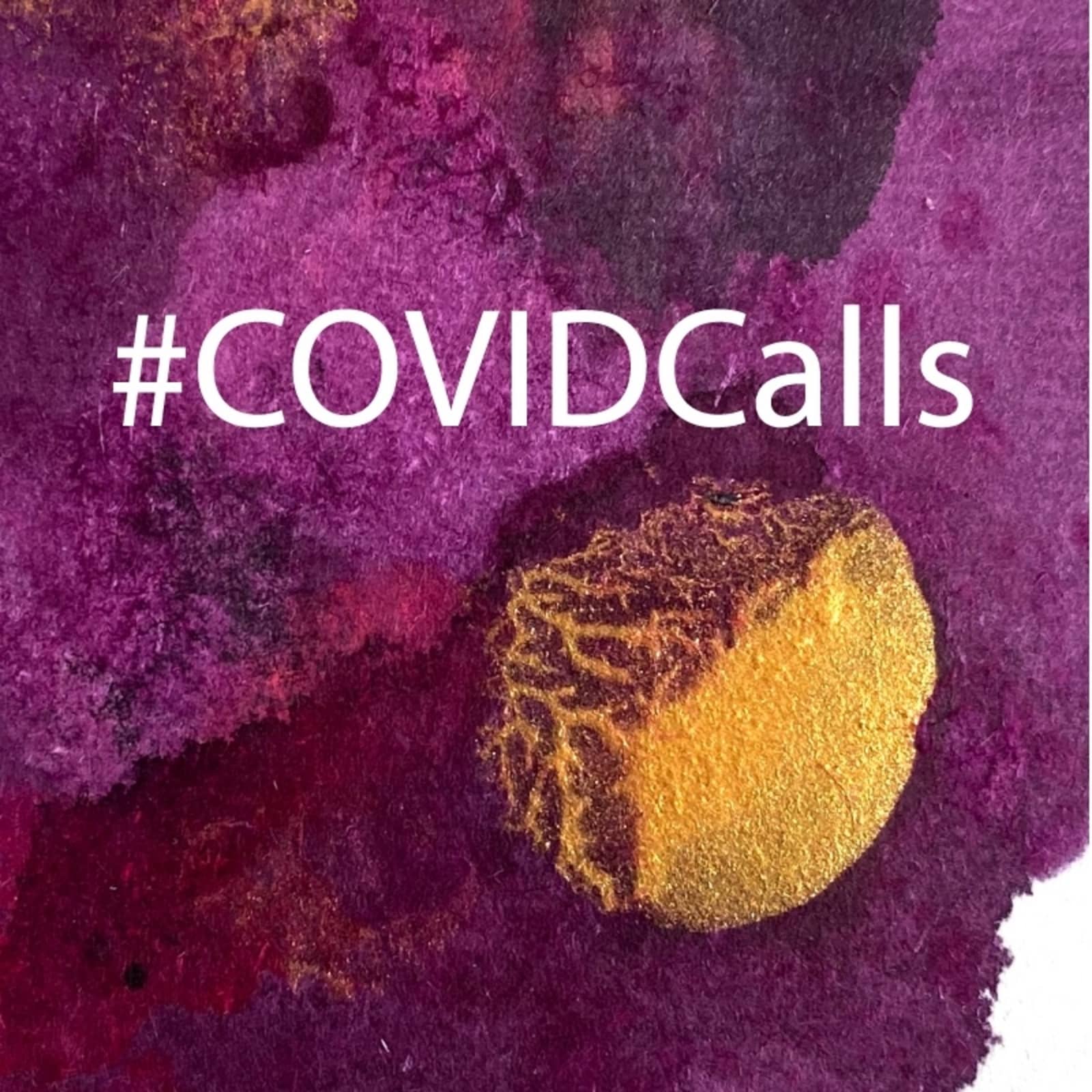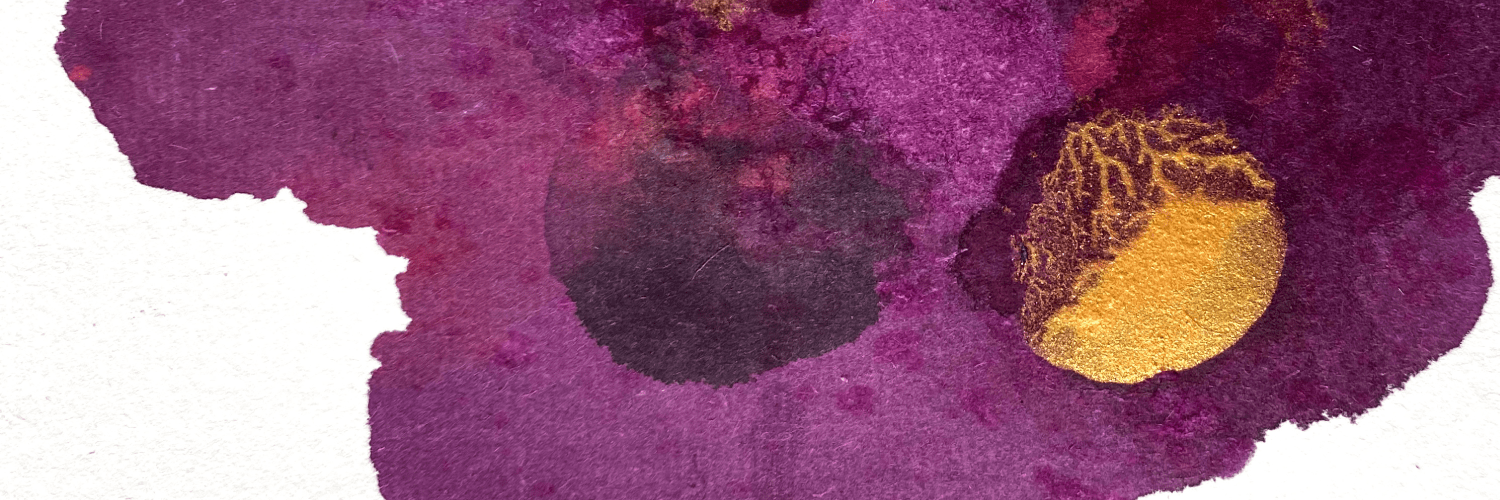
56K
Downloads
504
Episodes
A daily discussion of the COVID-19 pandemic with a diverse collection of disaster experts - hosted by Dr. Scott Gabriel Knowles, a historian of disasters at KAIST in Daejeon, South Korea.
A daily discussion of the COVID-19 pandemic with a diverse collection of disaster experts - hosted by Dr. Scott Gabriel Knowles, a historian of disasters at KAIST in Daejeon, South Korea.
Episodes

Monday Jun 29, 2020
EP #73 - Musical Performance and Discussion with Marco Lienhard
Monday Jun 29, 2020
Monday Jun 29, 2020
Today, we have a discussion and performance with Marco Lienhard, the director of East Winds, Inc. and the musical director and lead performer for Taikoza and East Winds Ensemble.
Since 1981, Marco has toured and taught internationally. He has performed as a soloist with Taikoza and Ondekoza numerous times at Carnegie Hall, Suntory Hall, Osaka Festival Hall, Madison Square Garden, Tchaikovsky Hall and International Performing Center in Moscow among others. With his knowledge of 7 languages, he has presented educational programs in several languages through South America, Europe and Japan. In 1995, Marco Lienhard was the critically acclaimed Shakuhachi soloist for the NYC Opera’s premiere of the Opera ''Kinkakuji'' and “Voyage X” with the Juilliard New Music Ensemble.

Monday Jun 29, 2020
EP #71 - City Planning & Architecture for the Pandemic - Roverto Moris
Monday Jun 29, 2020
Monday Jun 29, 2020
Today, we have a discussion about city planning & architecture for a pandemic with Roberto Moris.
Roberto MORIS is an architect who graduated from the Pontifical Catholic University of Chile, with a Master in City Design and Social Sciences, London School of Economics, and Ph.D. student in Civil Engineering, University of Granada. He is an expert on integrated planning, carrying capacity models, sustainability, and resilience. He has worked with the UNDP, World Bank, and IADB. He was Technical Secretary of the Cities and Territory Ministers Committee and National Director of Urban Projects at the Chilean Ministry of Housing and Urban Development. He was responsible for the creation of the first Urban Planning academic program in Chile and founder of the Chilean Planners Network. He is a professor at the School of Architecture and the Institute of Urban and Territorial Studies. He was Principal Investigator of the National Research Center for Integrated Risk Management, Director of Cities Observatory UC, and Director of Plans and Urban Projects Program UC. His research has focused on developing instruments to assist decision-making through methodologies and management models that integrate people into common objectives.

Wednesday Jun 24, 2020
EP #72 - Academy of Natural Sciences Part IV - Environmental Justice
Wednesday Jun 24, 2020
Wednesday Jun 24, 2020
Today, we have a discussion of environmental justice as part of the ongoing COVIDCalls-Academy partnership.
Mariangeles H. Arce (Ar-say) is the ichthyology collection manager in the Academy of Natural Sciences of Drexel University and an adjunct professor in the Biodiversity, Earth and Environmental Science (BEES) Department where she teaches Global Warming, Biodiversity, and your Future. Dr. Arce obtained her PhD in Zoology from the Pontificia Universidade Catolica do Rio Grande do Sul in Brazil in 2012. Her current research involves several neotropical catfish families and she is starting to work with environmental DNA as a tool to understand biodiversity of aquatic ecosystems.
Alexis Schulman is the Dolan Fellow for innovation in water science at the Academy and assistant research professor in Drexel’s Department of Biodiversity Earth and Environmental Sciences. I am an environmental planner and social scientist interested in understanding what drives "green," resilient innovation in urban infrastructure, policy, and planning.
Roland Wall has worked in a variety of positions for the Academy of Natural Sciences. He holds a B.A. in political science and an M.S. in entomology and applied ecology, both from the University of Delaware.
He started as a science writer working for Ruth Patrick, then developed and managed the Academy’s Town Square program and led the Academy’s involvement in the Urban Sustainability Forum. In 2007 he initiated the Center for Environmental Policy, spearheading the Academy’s involvement in policy and sustainability issues. In 2012 he launched the Academy’s involvement in the William Penn Foundation’s watershed protection planning, resulting in the launch of the Delaware River Watershed Initiative.
He became Director of the Patrick Center in 2016, where he manages the Academy’s environmental research projects, leading the interdisciplinary science team that works on a variety of basic and applied research projects.

Monday Jun 22, 2020
EP #70 - The Legacy of the Tulsa Massacre & COVID-19 - Hannibal B. Johnson
Monday Jun 22, 2020
Monday Jun 22, 2020
Today, we have a special Juneteenth discussion of the Tulsa Massacre of 1921 with Hannibal B. Johnson.
Hannibal B. Johnson is an attorney, author, and independent consultant specializing in diversity & inclusion/cultural competence issues and nonprofit governance. Johnson, a graduate of Harvard Law School, has served as an adjunct professor at The University of Tulsa College of Law, Oklahoma State University, and the University of Oklahoma. Johnson serves on the federal 400 Years of African-American History Commission, a body charged with planning, developing, and implementing activities appropriate to the 400th anniversary of the arrival, in 1619, of Africans in the English colonies at Point Comfort, Virginia.
He chairs the Education Committee for the 1921 Tulsa Race Massacre Centennial Commission.
Johnson’s books include: Images of America: Tulsa’s Historic Greenwood District; Black Wall Street–From Riot to Renaissance in Tulsa’s Historic Greenwood District; Up From the Ashes—A Story About Community; Johnson’s play, Big Mama Speaks—A Tulsa Race Riot Survivor’s Story, has been performed at the Tulsa Performing Arts Center, Philbrook Museum of Art, and at the Just Governance for Human Security Conference in Switzerland.

Sunday Jun 21, 2020
EP #69 - Public Health, COVID-19, and Protest - Peter Chin-Hong
Sunday Jun 21, 2020
Sunday Jun 21, 2020
Today, we have discussion of COVID-19, public health, and the George Floyd protests with Dr. Peter Chin-Hong.
Peter Chin-Hong is a medical educator who specializes in treating infectious diseases, particularly infections that develop in patients who have suppressed immune systems. He directs the immunocompromised host infectious diseases program at UCSF. His research focuses on donor derived infections in transplant recipients and molecular diagnostics of infectious diseases in patients with suppressed immune systems.
He earned his undergraduate and medical degrees from Brown University, before completing an internal medicine residency and infectious diseases fellowship at UCSF, where he is Professor of Medicine and Director of the Yearlong Inquiry Program in the School of Medicine. He is also an Inquiry Advisor to medical students. He was the inaugural holder of the Academy of Medical Educators Endowed Chair for Innovation in Teaching.

Friday Jun 19, 2020
EP #68 - Antiracism and Disaster Management- Felicia Henry & Monica Sanders
Friday Jun 19, 2020
Friday Jun 19, 2020
Today, we have discussion of antiracism, emergency management, and disaster research with two amazing scholars: Felicia Henry and Monica Sanders.
Felicia A. Henry is a Ph.D. Student in the Department of Sociology and Criminal Justice at the University of Delaware. Her research interests include race, ethnicity, gender, criminal justice/mass incarceration, social vulnerability and resilience in disasters, and communities. A Licensed Social Worker (LMSW), Felicia received her Master of Social Work degree from the School of Social Policy and Practice at the University of Pennsylvania. Felicia is a Bill Anderson Fund Fellow.
Monica Sanders is the Director of the Bill Anderson Fund, University of Delaware as. She also serves as an Associate Professor in Sociology and Criminal Justice. She has taught in the Emergency and Disaster Management Program at Georgetown University's School of Continuing Studies and the Washington and Lee University School of Law, where she created and taught a course on disaster law and policy. Her current work and interests include data in disasters, legal rights and how to use technology to reach vulnerable populations.
Professor Sanders also served as Senior Legal Advisor for International Response and Programs at the American Red Cross, where she focused on international disaster response and humanitarian assistance principles. Her response and oversight worked included being a Senior Committee Counsel for both the House of Representatives and Senate Committees on Homeland Security. In those roles, she focused on oversight of disaster response and recovery programs, cybersecurity, and critical infrastructure protection.

Thursday Jun 18, 2020
EP #66 - Race, Emergency Management & Pandemic , DeeDee Bennett and Njoki Mwarumba
Thursday Jun 18, 2020
Thursday Jun 18, 2020
Today, we have a discussion of COVID-19, race, and emergency management with DeeDee Bennett and Njoki Mwarumba.
DeeDee Bennett is an Assistant Professor in the College of Emergency Preparedness, Homeland Security, and Cybersecurity at the University at Albany, State University of New York. Her research interests include emergency management, socially vulnerable populations during disasters, emergency communications, disaster policy, and mobile wireless communications. She broadly examines the influence and integration of advanced technologies on the practice of emergency management, and for use by vulnerable populations.
Dr. Bennett received her Ph.D. from Oklahoma State University in Fire and Emergency Management. In addition to bringing expertise in emergency management, she has a unique academic background having received both her M.S. in Public Policy and B.S. in Electrical Engineering from the Georgia Institute of Technology. She is an Advisory Board Member for the Institute for Diversity and Inclusion in Emergency Management (I-DIEM).
Early in her Ph.D. graduate studies at Oklahoma State University, Njoki Mwarumba briefly worked with a USAID funded consultancy team. The team was funded to develop a national pandemic preparedness plan for Kenya in collaboration with Kenyas National Disaster Operation Centre. During that consultancy a colleague recommended the book 'The New Plagues': Pandemics and Poverty in a Globalized world' by Stefan Kaufmann. The confluence of these two events resulted in Njoki's dedicated focus on understanding how people, systems and institutions interact with public health disasters and pandemics. Her dissertation focus was on the role social vulnerability indicators played during the H1N1 pandemic of 2009.
Dr. Njoki Mwarumba now teaches Emergency Management and Disaster Science at the University of Nebraska Omaha.

Thursday Jun 18, 2020
Thursday Jun 18, 2020
Good afternoon everyone and welcome to the 67th of the COVID calls. This is a daily discussion of the COVID-19 pandemic with a diverse collection of disaster experts. My name is Scott Gabriel Knowles. I'm a historian of disasters at Drexel University in Philadelphia.

Sunday Jun 14, 2020
Sunday Jun 14, 2020
Today, we have a discussion of COVID-19, race, and the health care crisis with Nic Ramos and Dannie Ritchie.
Nic John Ramos is an Assistant Professor in the Department of History at Drexel University. He is currently working on his book manuscript, “Policing Health: Making Race, Sexuality, and Poverty Productive in Global Los Angeles, 1965-1986” which examines the interlocking relationships between the rise of prisons and policing and new spatial forms of segregation like Skid Row and new health care institutions originally built as anti-poverty projects, such as neighborhood health centers, community mental health centers, and emergency medical systems. He just published an op-ed article in the Made By History section of the Washington Post.
Dianne (Dannie) Catherine Ritchie, MD, MPH, a Family Physician, is a Clinical Assistant Professor of Family Medicine at Brown. She completed her Medical Degree at the University of Chicago, Pritzker School of Medicine. She completed her training in Family Medicine at the Residency Program of Social Medicine at Montefiore Medical Center and Albert Einstein’s College of Medicine. She came to Brown to pursue Health Service Research and she completed her Master’s in Public Health at Brown in 2003.
Dr. Ritchie’s interest is in policies and social conditions that affect our health, our health care system and our well-being. Her work now involves working with Brown students, faculty and the diverse communities of Rhode Island at large to establish collaboration for greater community activity in health promotion. Through her work on the Transcultural Community Health Initiative (TCHI), initiated in 2003, she has created a Community Health Worker (CHW) program, based on nationally recognized core competencies. This program is designed to stand alone or comprise part of an entry level career path for diverse underrepresented communities.

Sunday Jun 14, 2020
EP #64 Prisons and COVID-19 with Alan Mills & Melanie Newport
Sunday Jun 14, 2020
Sunday Jun 14, 2020
Today, we have a discussion of COVID-19, prisons, and incarcerated people with Alan Mills and Melanie Newport.
Alan Mills is the Executive Director of Uptown People’s Law Center–a nonprofit community legal clinic located on the North Side of Chicago. UPLC is a legal organization that fights for justice for tenants, the disabled, and prisoners in Illinois.
Alan has tried dozens of individual cases on behalf of prisoners in state and federal court during the last 40 years. UPLC is currently lead counsel in six class action cases alleging that Illinois prisons violate the constitutional rights of the people who are kept there. These include challenges to Illinois supermax prison known as Tamms, a claim that the medical care provided to prisoners violates the 8th Amendment prohibition against cruel and unusual treatment, and the state’s failure to accommodate the communication needs of deaf and hard of hearing prisoners, as well as a recently filed case challenging the IDOC’s failure to protect prisoners during the COVID-19 pandemic.
Melanie Newport is assistant professor of History at U CONN. Melanie’s research focuses on the policies and institutions of urban criminal justice systems in the United States since the 1950s. She is currently working on a book that is tentatively titled Community of the Condemned: Chicago and the Transformation of American Jails, under contract with University of Pennsylvania Press. Looking to America’s largest jail, she explores how contests over reform, human rights, and race shaped everyday experiences of state violence among marginalized people in American cities.
As a graduate student, Melanie worked as a preceptor in African American Studies at Princeton University and taught at Temple University, Community College of Philadelphia, and Garden State Youth Correctional Facility in New Jersey. She has trained with the Inside-Out Prison Education exchange.
